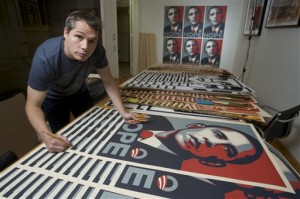
One of the biggest and most influential quotes I picked up from watching Steal This Film II was from Mark Getty, the CEO of Getty Images — which was, “Intellectual property is the oil of the 21st century.”
We now live in a world where the continuous sharing of ideas, information, and art through technological means is the basis of how the world stays connected. However, a major hinderance when it comes to taking hold of “intellectual property” has come to be copyright control.
The survival of journalists in this information climate is going to be an uphill battle. Yes, aggregating other news sources is an act of copying. However, at the same time is still is an act of sharing — just as the need to listen and talk is an act of sharing by imitating each other. Journalists always need to be aware of their sources and how they go about citing what’s theirs and what isn’t, which is of course rule of thumb.
As for news organizations and aspiring journalists breaking into the field, they both must reach an understanding that the Internet is everybody’s biggest competitor. Why? Because it is the most decentralized news source out there — and it is necessary.
In this day and age, people should only be paying for tangible things — not ideas or information in which you can never really touch or possess. It’s a free-for-all network of free flowing ideas and information that is good for society, because it eliminates the potential for unjust gatekeeping by putting a price tag on things you want or want to know.
A perfect example would be the Fairey vs. AP case, where an individual simply wanted to take what was in cyber space and create something of his own. AP cracked down on what Fairey had done to the Obama “Hope” photo, claiming he had not sought out proper permission when altering it to the extent he had and went on to sue him.
The same situation can be applied to the film, where aspiring music producers willingly post their instrumentals/beats online for free download. They encourage others to use what they’ve created and make it their own, because they feel the Internet’s decentralization was meant for this sole purpose of sharing ideas with zero boundaries.
This is why I feel AP took legal action too far, because nobody should be able to tell you what you can and cannot do with what you find on the Internet, regardless of whatever copyrights there may be. What makes the Internet so amazing is the potential for millions of authors is endless.